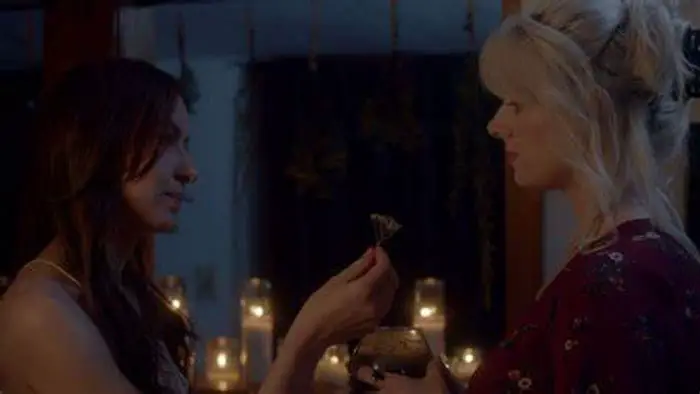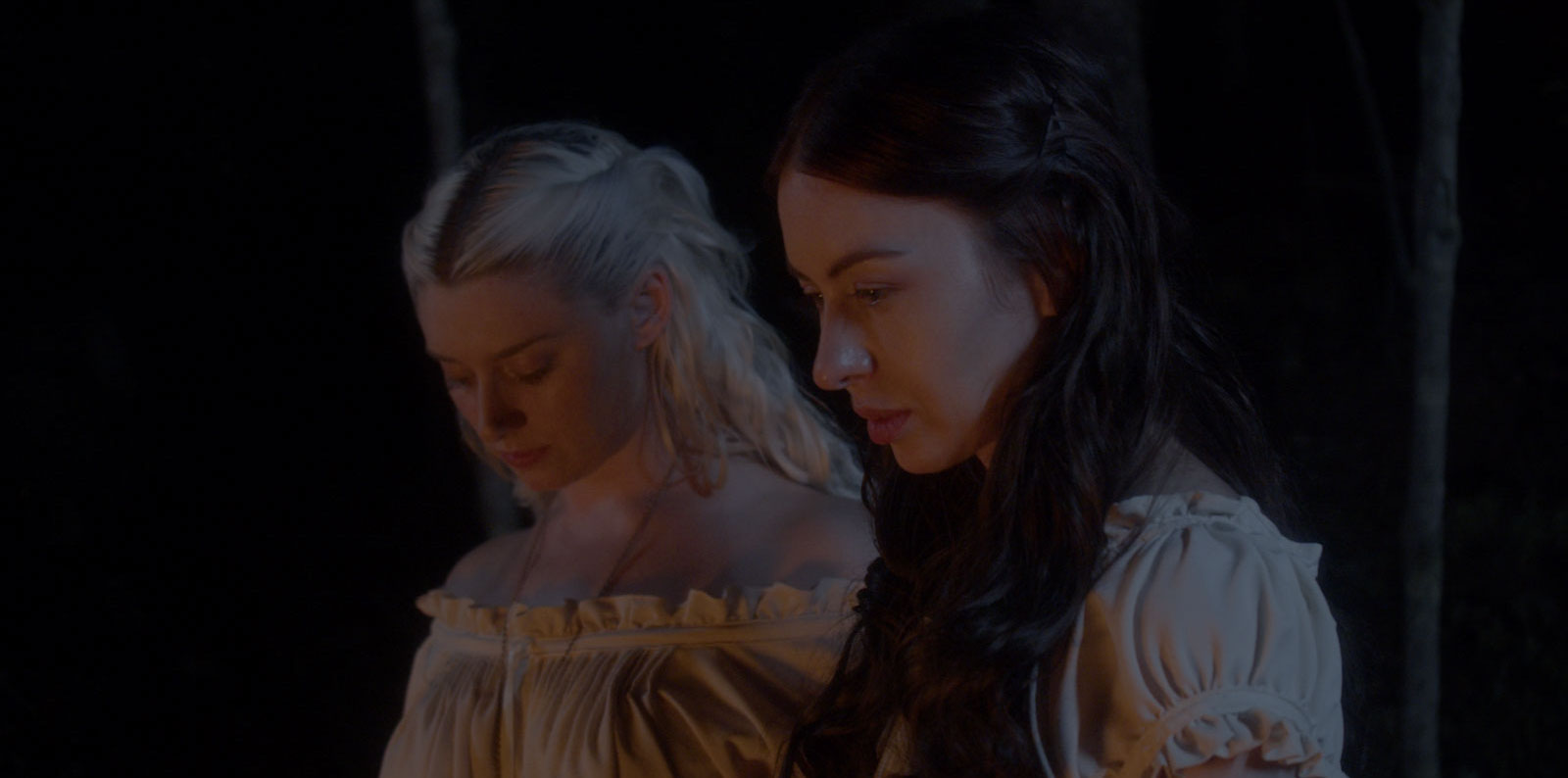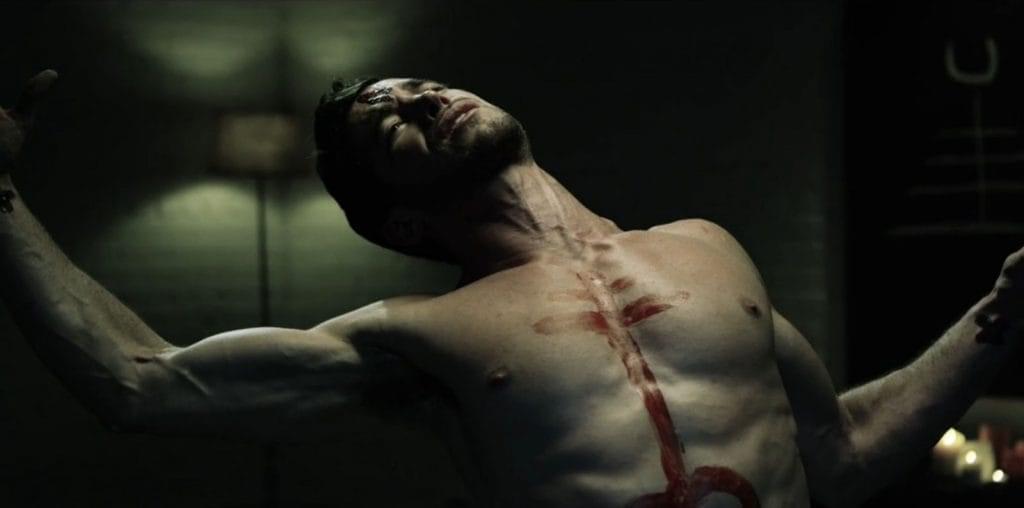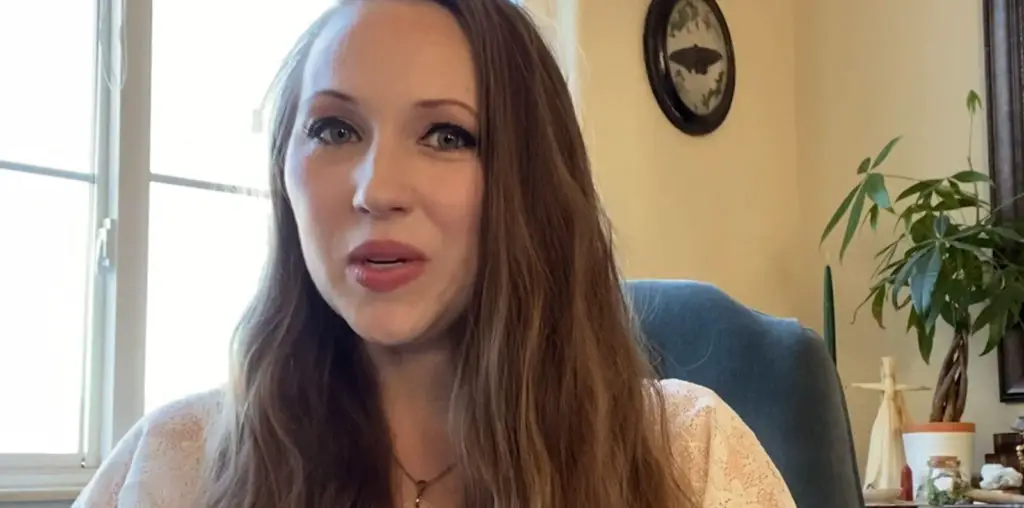
Wielding magic for good or evil has been the basis of most spellbound tales. With Summoners, director Terence Krey, whose previous film, An Unquiet Grave, dealt with the supernatural as well, utilizes witchcraft but within the framework of reality. There is no inherent good or evil, only the innate desire for control and the inevitability of human error.
The film introduces Alana Wheeler (McLean Peterson) as she’s sitting on the floor, physically exhausted. Her clothes are splattered with blood, and her eyes look awfully dejected. This beguiling shot alludes to a violent tragedy. But for those looking to see the clash of good and evil in the typical sense will be surprised to learn that Summoners doesn’t summon a lot of spells. Rather, the simple yet dynamic screenplay, by Krey and Christine Nyland, casts a more intimate spell concentrating on confronting and overcoming guilt.
After her mother’s death, Jess Whitman (Nyland) left home and went to a college in Boston. She remained there for the next ten years working at an archive. Then, one day, she suddenly gets an urge to return home, where she’s reunited with her father (Larry Fessenden) and her high school friend Alana. The two pals catch up, recalling the good times, but some animosity spills over in a few remarks. While Alana understands why Jess left, she is still somewhat angry at her for doing so. But their conversation remains cordial.
Then there’s a point where their conversation takes a turn to witchcraft. As kids, Jess and Alana would experiment with witchcraft. Through some convincing and remembering, Jess agrees to assist Alana with a ritual. Jess can’t shake the feeling that Alana hasn’t told her everything about it, but she ultimately gives in and reacquaints herself with the practice. As expected, the spell backfires.

“…she ultimately gives in and reacquaints herself with witchcraft. As expected, the spell backfires.”
Summoners benefits from a more thoughtful, naturalistic approach to witchcraft. The supernatural is kept at a minimum and therefore keeps the emphasis on the characters and their trauma. Jess and Alana are phenomenally molded to be credible, guilt-ridden subjects that invite scrutiny and empathy. They are imperfect and impetuous; they are also decidedly human, burdened with the harsh words and actions of others in their small community who can’t possibly know what their feeling.
The film enchants whenever Jess and Alana are together. Nyland and Peterson have exceptional chemistry, presenting themselves as old friends who are bound by fond memories. Yet, at the same time, they are both struggling to cope with the past and how it continues to affect them today. Alana, specifically, played by a stellar Peterson, is endowed with inconceivable guilt. The actor’s given the emotionally strenuous task of intricately conveying grief, guilt, and self-loathing while concomitantly keeping a falsely poised temperament. Watching Alana’s confident façade crack is genuinely heartbreaking and well-constructed, proving to be the strongest arc in the film.
When the film meanders from the central pair to focus on a neighbor (Madeline Grey DeFreece), there is very little worthwhile intrigue. However, regardless of the unnecessary subplot, which seems to exist to fill a gap, the film has a singular tone that drives the story forward.
Summoners unearths the complicated nature of guilt and the possibility of forgiveness. Despite its horror roots, this is a tender and beautifully made witchcraft tale woven with mystical and real-life horrors that come with implications we have no control over. Even so, we have control over how we react and how we move forward.

"…beautifully made witchcraft tale..."


